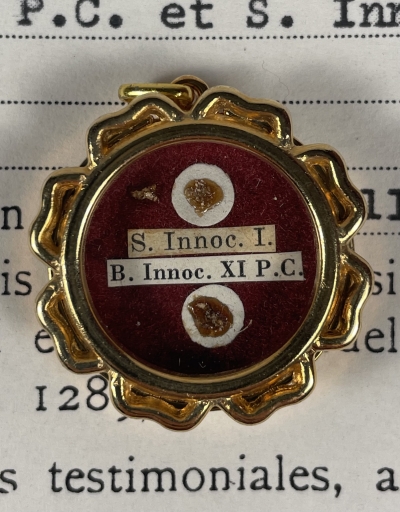Pope Innocent I († 417) was the bishop of Rome from 401 to his death. He was seen as the general arbitrator of ecclesiastical disputes in both the East and the West. He confirmed the prerogatives of the Archbishop of Thessalonica, and issued a decretal on disciplinary matters referred to him by the Bishop of Rouen. He defended the exiled John Chrysostom and consulted with the bishops of Africa concerning the Pelagian controversy, confirming the decisions of the African synods. He is venerated as a saint in the Eastern Orthodox Church as one of the pre-Schism "Orthodox Popes of Rome". His feast day is 12 March.
Pope Innocent XI (†1689), was head of the Catholic Church and ruler of the Papal States from 21 September 1676 to his death. He was frugal in his governance of the Papal States and applied himself to moral and administrative reform of the Roman Curia. He abolished sinecures and pushed for greater simplicity in preaching as well as greater reverence in worship, requesting this of both the clergy and faithful. In consideration of his diplomatic and financial support for efforts to free Hungary from Turkish domination, he is still widely referred to in the country as the "Saviour of Hungary". After a difficult cause for canonization, starting in 1791, which caused considerable controversy over the years and which was stopped on several occasions, he was beatified in 1956 by Pope Pius XII. His feast day is 12 August and 13 August in Hungary.









 Поменять язык на русский
Поменять язык на русский 